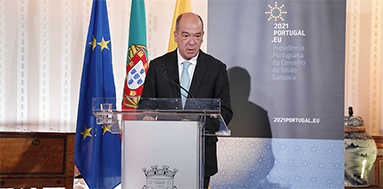The Follow-up Committee of the Luxembourg Declaration for the Social Economy, chaired by the Portuguese Government this year, met on 13 July. At this meeting, the Cascais Declaration was adopted, confirming once again the commitment of European governments to the Social Economy business model.
The document includes a series of principles and recommendations adopted by these States that recognise, among other aspects, the contribution of the Social Economy, in collaboration with the traditional public and private business sector, to offer “more agile and proximity responses to the effects of COVID-19 in crucial areas of economic activity and in community social action”; as well as to the “contribution of innovative solutions for a just ecological and digital transition, playing a key role in strengthening Europe’s industry and resilience through collective entrepreneurship”.
With this Declaration, governments pledge to strengthen the commitment to the previous orientations formulated in the Luxembourg, Bratislava, Ljubljana, Madrid Declarations, the Paris “Pact for Impact” Manifesto, and in the Toledo Declaration, which was signed by 19 EU governments last year, by assuming a common understanding of the values and principles of the Social Economy that are affirmed therein. The Cascais Declaration also takes into account the measures recommended in the Mannheim Declaration on Social Economy, issued at the European Social Economy Summit on 27 May last.
The signatory governments will recommend to the EU institutions and to the other Member States to reinforce the commitment to Social Economy entities as an instrument of resilience in the context of the economic and social crisis caused by COVID-19, by including them in the European Financing Instruments and in the national Recovery and Resilience Plans.
They also commit to improve access to public and private funding for Social Economy entities, taking into account the specificities of this business model. The Declaration notes that “special attention should be paid to the use of social criteria in public procurement”, as well as to the potential of this model to “achieve emission reduction targets, including through the inclusion of relevant criteria in public procurement”.
On the other hand, the countries will support the European Action Plan for the Social Economy, which will be approved by the European Commission in the last quarter of 2021, with the aim of strengthening existing Social Economy entities and social enterprises, as well as the creation of new entities, and strengthening the role of the Social Economy in the European Pillar of Social Rights and in boosting the Green and Digital Transition.
The Cascais Declaration also mentions Education, recommending the structuring, at EU level and through the mobilisation of the Erasmus Plus programme, of a coherent policy of education on the Social Economy in the curricula of all educational levels.
Finally, the countries recognise the importance of measuring the social impact of this business model, for which they will strengthen the promotion of cooperation between the academic world, research centres, statistical institutes and Social Economy entities and enterprises. The objective is the creation, establishment and dissemination of methodologies, networks of good practices and statistical tools, including satellite accounts of the Social Economy, as well as studies and instruments.
The Luxembourg Declaration Follow-up Committee
The Luxembourg Declaration, adopted at the Luxembourg Conference held on 3 and 4 December 2015 by representatives of the governments of France, Italy, Luxembourg, Slovakia, Slovenia and Spain, states that the European Union must reach a common understanding on the scope of the social economy and respect its enormous diversity and historical evolution in all Member States, and advocates the inclusion of the social economy in the process of modernising the Single Market Strategy. It also calls for high-level meetings of social economy leaders in the various Member States.
The initial group that signed the Luxembourg declaration has been joined by other high-level government representatives responsible for the social economy in the EU. At present, 19 Member States (Austria, Belgium, Bulgaria, Czech Republic, Croatia, Cyprus, France, Greece, Ireland, Italy, Latvia, Luxembourg, Malta, Portugal, Romania, Slovak Republic, Slovenia, Spain and Sweden) are members of the Monitoring Committee of the Luxembourg Declaration.







